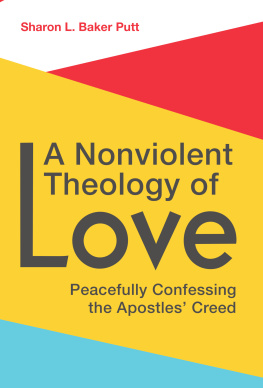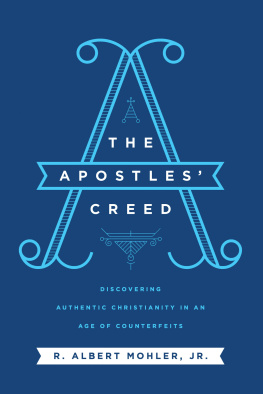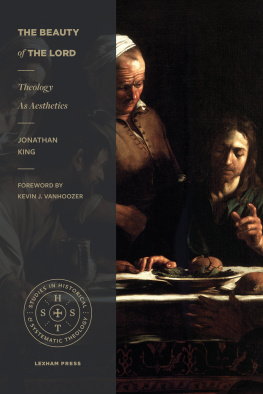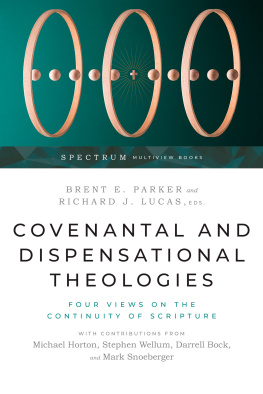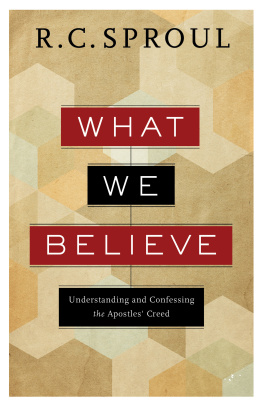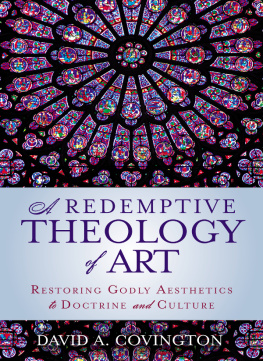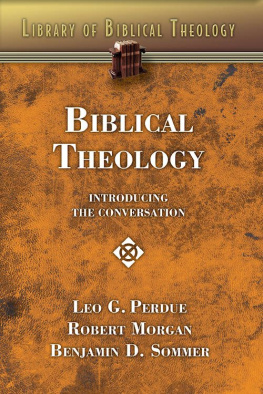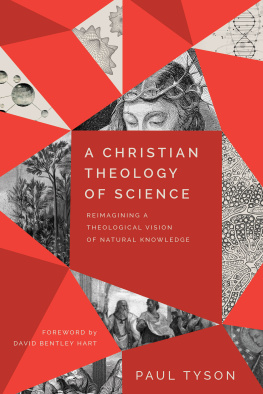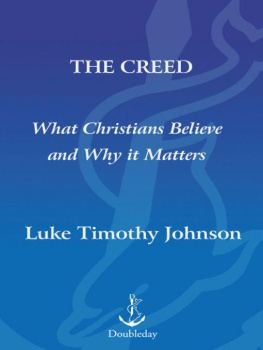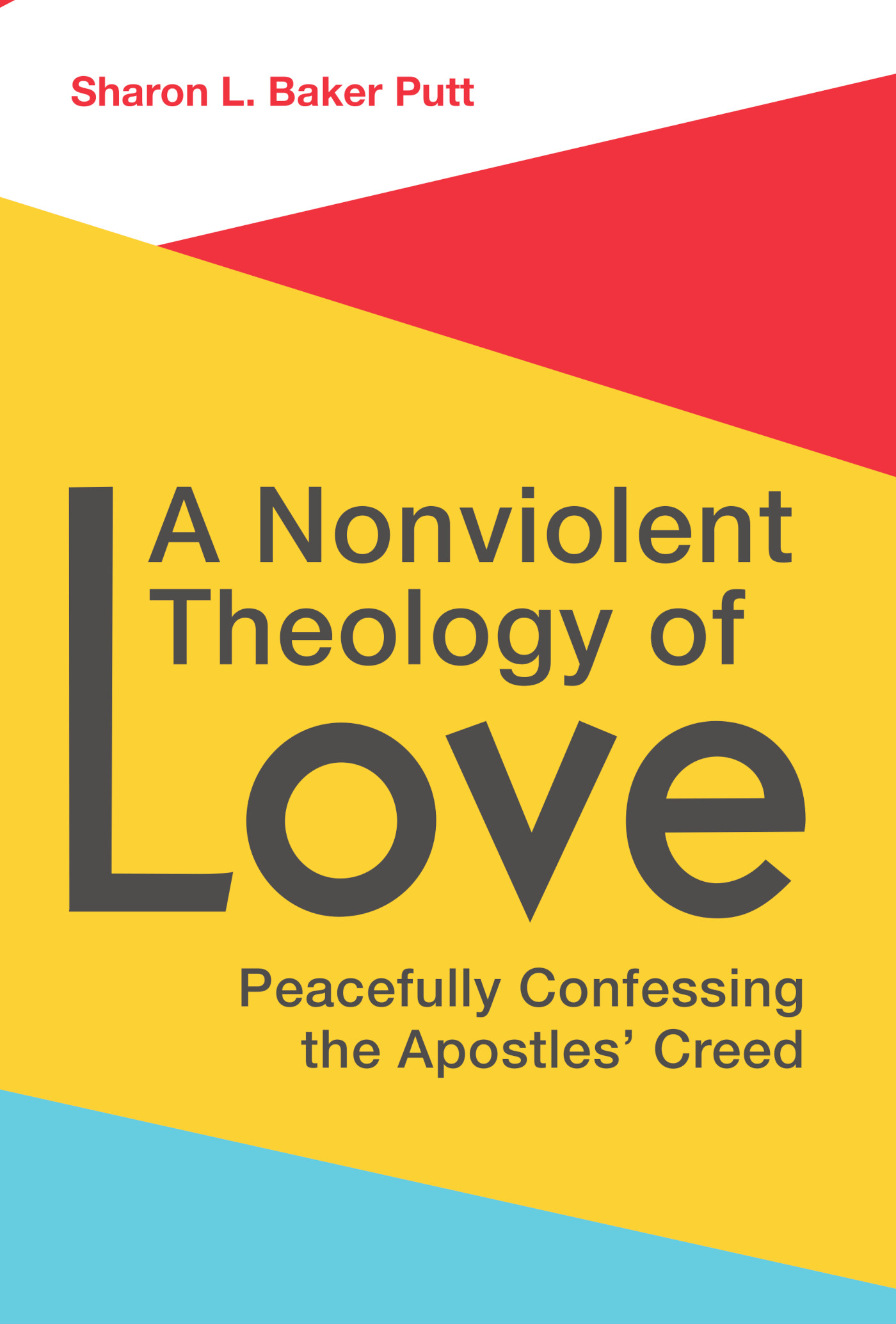
A Nonviolent Theology of Love
A Nonviolent Theology of Love
Peacefully Confessing the Apostles Creed
Sharon L. Baker Putt
Fortress Press
Minneapolis
A NONVIOLENT THEOLOGY OF LOVE
Peacefully Confessing the Apostles Creed
Copyright 2021 Fortress Press, an imprint of 1517 Media. All rights reserved. Except for brief quotations in critical articles or reviews, no part of this book may be reproduced in any manner without prior written permission from the publisher. Email or write to Permissions, Fortress Press, PO Box 1209, Minneapolis, MN 55440-1209.
All Scripture quotations, unless otherwise noted, are from New Revised Standard Version Bible, copyright 1989 National Council of the Churches of Christ in the United States of America. Used by permission. All rights reserved worldwide.
Scripture quotations marked (AMP) are from the Amplified Bible, Copyright 2015 by The Lockman Foundation. Used by permission. www.lockman.org.
Scripture quotations marked (KJV) are from the King James Version.
Scripture quotations marked (NASB) are from the New American Standard Bible, Copyright 1960, 1962, 1963, 1968, 1971, 1972, 1973, 1975, 1977, 1995 by The Lockman Foundation. Used by permission. www.lockman.org.
Scripture quotations marked (NIV) are taken from the Holy Bible, New International Version, NIV. Copyright 1973, 1978, 1984, 2011 by Biblica, Inc. Used by permission of Zondervan. All rights reserved worldwide. www.zondervan.com The NIV and New International Version are trademarks registered in the United States Patent and Trademark Office by Biblica, Inc.
Apostles Creed from Praying Together copyright 1998 English Language Liturgical Consultation. Used by Permission.
Cover design: Alisha Lofgren
Print ISBN: 978-1-5064-2493-4
eBook ISBN: 978-1-5064-2494-1
To my grandchildren,
with hope for a nonviolent future
Contents
Many conversation partners engaged and challenged me as I wrote this book, among them Eric Seibert, Richard Crane, and Shelly Skinner. Erics dedication and conviction concerning a nonviolent God continue to inspire me. Richards artesian fountain of theological information and little golden nuggets always made me think and laugh. And Shellys insistence on reprising the fundamentals of the faith kept me grounded. I thank each of them wholeheartedly for extending their scholarship, expertise, encouragement, and friendship. Additionally, I express my deepest gratitude for Robin Collins, whose creative theological interpretations relating to atonement, evil, and the human person significantly improved this book. I must also express deep appreciation to my good friend Fisher Humphreys, who read the entire manuscript in its roughest form and offered invaluable critique and suggestions. Undoubtedly, the quality of this book would be much poorer had Fisher not contributed his inspired guidance.
Of course, I must also acknowledge my students, who motivated and encouraged me by asking tough questions with open minds, consistently volunteering their critiques, and insistently challenging me with the biblical witness. Among my students, I must give special recognition to Becca Fedor, my TA, who spent hours reading and editing the manuscript, and to Austin White, whose artistic talent provided a beautiful image of the global church. Thank you as well to the many students who served as conversation partners throughout the process, particularly Kiersten Smeal, who, thankfully, took on the thankless job of helping with the index, as well as Kortnei Confer, Sami John, Joshua Orsi, and Kylie Kosko. Many thanks also to Kathy and Jack Caputo for making space for me to write in the comfort and quietness of their home and for their friendship and encouragement during the years it took to write the book.
Many thanks to my editors at Fortress Press, who have contributed significantly to this text. I am very grateful to Rebecca Adams, my developmental editor, for the hours and hours she spent editing, enhancing content, offering ideas, and, at times, improving my prose. Without her expert editorial guidance, this book would not be what it is today. Her professional proficiency, unending patience, and discerning eye made the publishing process a pleasure. Emphatic thanks to Heidi Mann, whose careful copy editing caught my many typos and faux pas.
Finally, I give my special heartfelt thanks to B. Keith Putt, my closest, dearest friendand husbandfor editing this manuscript, offering insights, listening to my endless complaints, and proving once again that, although he is a philosopher, he sometimes knows theology better than I do!
I believe in God, the Father almighty,
creator of heaven and earth.
I believe in Jesus Christ, Gods only Son, our Lord,
who was conceived by the Holy Spirit,
born of the virgin Mary,
suffered under Pontius Pilate,
was crucified, died, and was buried;
he descended to the dead.
On the third day he rose again;
he ascended into heaven,
he is seated at the right hand of the Father,
and he will come to judge the living and the dead.
I believe in the Holy Spirit,
the holy catholic church,
the communion of saints,
the forgiveness of sins,
the resurrection of the body,
and the life everlasting. Amen.
Or, he descended into hell, another translation of this text in widespread use.
Apostles Creed, Evangelical Lutheran Worship (Minneapolis: Augsburg Fortress, 2006), 105. This wording first published by English Language Liturgical Consultation in Praying Together, 1988.
A perfect Introduction to Theology text does not exist. I know because Ive spent years searching for one. This book is a result of that search. To write a work of theology risks forcing the reader to wade through an ocean of perplexing academic jargon, complicated arguments, and long, content-filled footnotes describing the plethora of research that went into the projectall components that academicians typically expect. I do hope academic theologians will find this book useful, especially in the classroom, but I write primarily for pastors, church lay persons, and undergraduate students; the everyday people who want to learn theology; those who preach, teach, or simply wish to live life as close to the gospel message as possible. Ive written the text I always wanted to usewhat I hope is an accessible, engaging introductory text with a philosophical and theological sophistication that does not overwhelm its readers.
The Approach
Every text needs an organized structure that serves as the skeleton for the entire content of the book. What does a skeleton do? It supports and shapes a body. It gives an organism its backbone and enables it to stand on solid ground. In like manner, this book needs a backbone, a strong structure that shapes it and gives it support. Therefore, I have chosen the Apostles Creed, as a foundational document of Christian theology, for the books skeleton.
In a world dominated by many religions and belief systems, the Apostles Creed characterizes the identity and beliefs of Christians from as early as the second century CE. As an early Trinitarian, ecumenical statement of faith, the Apostles Creed presents the Christian tradition with broadly defined assertions that allow freedom for multiple expressions of the doctrines of our faith. In contrast, many later creeds and confessions lock their adherents into one narrow theological viewpoint to the exclusion of other significant and valid doctrinal expressions of thought. Fortunately, the Apostles Creed maintains for us a connection with our historical Christian roots while, at the same time, allowing some room in which to reinterpret and reexpress traditional doctrines in ways relevant to our constantly changing cultures.
Next page
